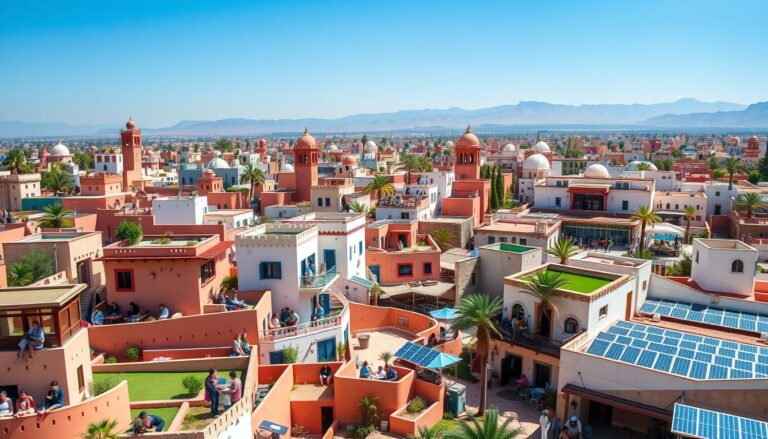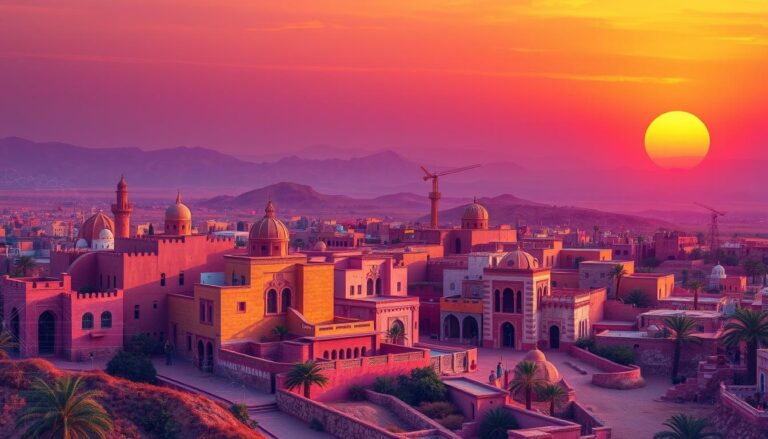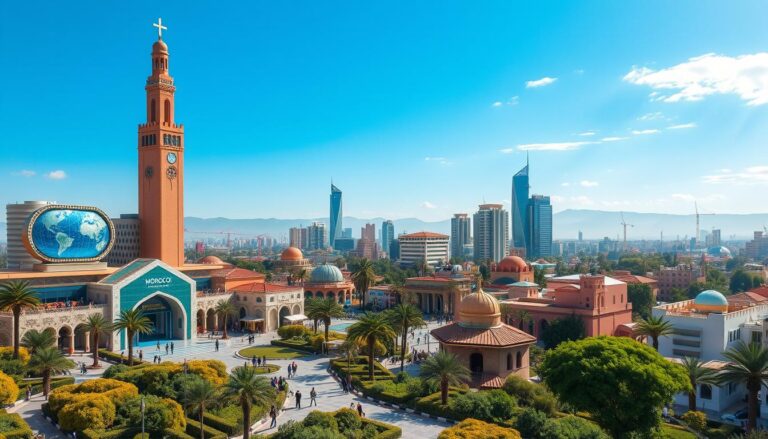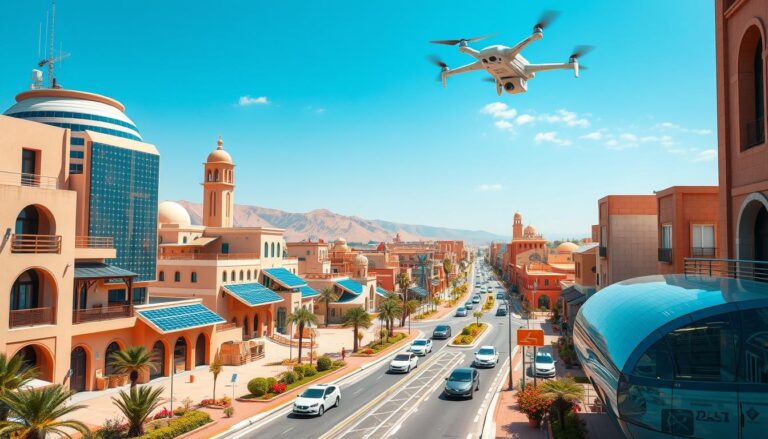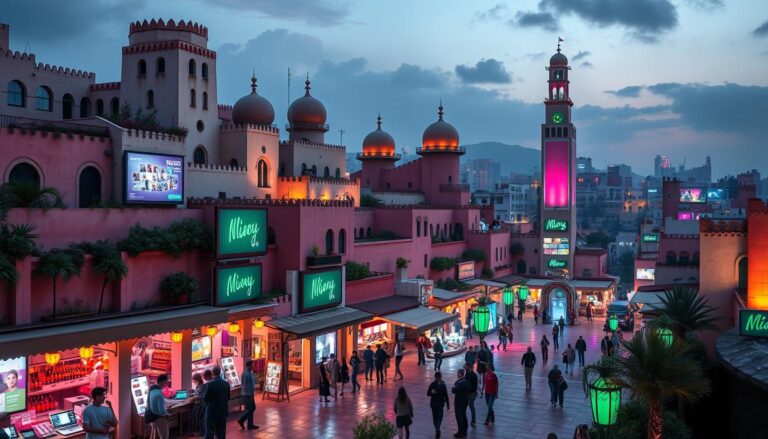Are you curious about the economic powerhouse that is Morocco’s automotive industry? Look no further! In this article, we will delve into the factors driving the development of this thriving sector and explore its impact on the country’s economy.
With its strategic geographical proximity to Europe, a skilled workforce, favorable business environment, and robust government support and policies, Morocco has positioned itself as an attractive destination for automotive manufacturers looking to expand their operations.
One of the key advantages that sets Morocco apart is its geographical location. Situated just a stone’s throw away from Europe, it offers easy access to major markets and transportation networks. This proximity not only reduces logistical costs for manufacturers but also allows them to respond swiftly to customer demands in a highly competitive industry. As such, many global automotive giants have chosen to set up shop in Morocco, establishing a strong presence and contributing significantly to the country’s economic growth.
Additionally, Morocco boasts a well-trained and skilled workforce that meets the demanding needs of the automotive industry. The government has invested heavily in vocational training programs focused specifically on developing talent for this sector. As a result, Moroccan workers have gained expertise in areas such as assembly line production, engineering design, and advanced manufacturing techniques. Their proficiency enables them to produce high-quality vehicles that meet international standards while maintaining cost competitiveness. This skilled workforce acts as a magnet for investors who seek capable hands behind their projects – further fueling the expansion of Morocco’s automotive industry.
In conclusion, Morocco’s automotive industry holds tremendous potential for driving economic development in the country. Its strategic location provides easy access to European markets while benefiting from favorable business conditions and robust government support. With a highly skilled workforce at hand, manufacturers can tap into this booming sector with confidence – resulting in job creation and increased revenue streams for both local businesses and international investors alike.
Key Takeaways
- Morocco’s automotive industry has become an economic powerhouse, driven by factors such as geographical proximity to Europe, a skilled workforce, a favorable business environment, and government support.
- The country’s strategic location allows for easy access to major markets and transportation networks, attracting global automotive giants to set up operations in Morocco.
- Morocco’s well-trained and skilled workforce, supported by government investments in vocational training programs, is a major advantage for the automotive industry.
- The favorable business environment in Morocco, including incentives such as tax breaks and reduced labor costs, infrastructure development, and free trade zones, makes it a competitive destination for global carmakers and stimulates economic growth in the sector.
Geographical Proximity to Europe
Located just a stone’s throw away from Europe, Morocco’s automotive industry is strategically positioned to benefit from its geographical proximity and drive economic development. This close proximity offers significant geopolitical advantages for the country, as it allows for easy access to European markets and trade opportunities.
Being so close to Europe means that Morocco can establish strong trade relationships with European countries, resulting in increased investment and collaboration within the automotive industry.
One of the key advantages of being geographically near Europe is the reduced logistical costs and time associated with exporting goods. Moroccan automotive companies can quickly transport their products to European markets, allowing them to respond swiftly to market demands and changes. This accessibility opens up a wide range of trade opportunities for Morocco, enabling them to attract foreign direct investment from major automakers looking to establish production plants in North Africa.
Furthermore, being nearby Europe provides Moroccan automotive manufacturers with access to advanced technologies and expertise present in European countries. This exposure stimulates innovation within the industry as Moroccan companies adopt best practices from their European counterparts. The transfer of knowledge allows for continuous growth and improvement within the sector, positioning Morocco as a competitive player in both regional and global automotive markets.
The strategic location also enhances Morocco’s ability to form partnerships and collaborations with European companies. Joint ventures between Moroccan firms and established European automakers can lead to technology transfers, skills development programs, and infrastructure improvements. These alliances not only create new business opportunities but also contribute towards developing a skilled workforce capable of meeting international standards.
Morocco’s geographical proximity to Europe provides significant geopolitical advantages and trade opportunities for its burgeoning automotive industry. The ease of accessing European markets allows for quick response times, lower logistical costs, and increased collaboration with major players in the sector. By harnessing this advantage effectively while also investing in skills development programs, Morocco can continue driving economic development through its thriving automotive sector.
Skilled Workforce
With a highly trained workforce, Morocco’s automotive sector is poised to become a major player in the global market. The country has invested heavily in vocational training programs to develop skilled workers who meet the industry’s specific demands.
These programs focus on providing practical, hands-on training that equips individuals with the necessary technical skills needed in the automotive industry. Through partnerships with international companies and institutions, Morocco has been able to address the skills gap by tailoring its training programs to match industry needs.
One of the key strategies employed by Morocco is conducting skills gap analysis to identify areas where the local workforce falls short. This analysis helps determine which skills are in high demand and then tailor vocational training programs accordingly. By aligning their training initiatives with specific industry requirements, Morocco ensures that its workforce remains competitive and relevant in today’s rapidly evolving automotive sector.
Morocco’s commitment to developing a skilled workforce extends beyond simply offering vocational training programs. The government has also implemented policies and incentives to encourage young people to pursue careers in the automotive industry. This includes scholarships, internships, and apprenticeship opportunities that provide practical experience alongside theoretical knowledge. By nurturing talent from an early stage, Morocco ensures a sustainable pipeline of skilled workers for its thriving automotive sector.
Morocco’s focus on vocational training programs and skill development has positioned its automotive industry for success on a global scale. The country recognizes the importance of addressing the skills gap through comprehensive analysis and tailored training initiatives. With a highly trained workforce ready to meet industry demands, Morocco offers an attractive proposition for international companies looking to establish operations within a favorable business environment – which will be discussed further in subsequent sections about ‘favorable business environment’.
Favorable Business Environment
Amidst a thriving automotive sector, Morocco’s business environment has created favorable conditions for international companies looking to establish operations. The country offers lucrative investment opportunities and is actively working on infrastructure development to support the growth of the industry.
To attract foreign investments, Morocco provides various incentives such as tax breaks, reduced labor costs, and streamlined administrative procedures. These measures have significantly lowered the barriers to entry for international companies, making it easier for them to set up manufacturing plants or establish supply chain networks in the country. This favorable business environment has not only attracted major automotive manufacturers like Renault and Peugeot but also encouraged suppliers and service providers to invest in Morocco.
Morocco’s proactive approach towards infrastructure development further enhances its appeal as an ideal destination for automotive businesses. The government has invested heavily in transportation networks, including highways, railways, and ports, ensuring efficient connectivity both domestically and internationally. This commitment enables companies to seamlessly transport raw materials and finished goods within the country and export their products globally. Additionally, the establishment of free trade zones strategically located near major ports provides additional advantages by reducing customs duties and facilitating smoother logistics operations.
As we transition into discussing government support and policies in the next section, it is worth mentioning that Morocco’s favorable business environment is crucially supported by these factors: investment opportunities and infrastructure development. The combination of attractive incentives for foreign investors along with a well-connected transportation network positions Morocco as a prime location for automotive companies seeking growth opportunities. However, it is important to examine how governmental policies play a role in sustaining this conducive environment for economic development in the automotive sector.
Government Support and Policies
One key factor that has contributed to the success of international companies in Morocco is the government’s unwavering support and implementation of favorable policies. The Moroccan government has been proactive in creating an attractive business environment for automotive manufacturers by offering a range of incentives and benefits. These include tax breaks, grants, and subsidies aimed at encouraging investment in the industry.
Such measures have made Morocco a highly competitive destination for global carmakers looking to expand their operations. To further boost the growth of the automotive sector, the government has implemented various policies to attract foreign investment. One such policy is the establishment of free trade zones, known as export processing zones (EPZs), which provide special economic incentives for businesses operating within them. These EPZs offer streamlined administrative procedures, reduced customs duties, and exemptions from certain taxes. They also allow companies to benefit from simplified labor regulations and access to a skilled workforce.
In addition to these incentives, the Moroccan government has actively promoted research and development activities within the automotive sector. By partnering with educational institutions and investing in innovation centers, they have created an environment conducive to technological advancements in automobile manufacturing. This focus on R&D not only helps companies stay ahead of market trends but also contributes to job creation and skills development among local workers.
Moreover, the government’s commitment to sustainable development has further enhanced investment opportunities in Morocco’s automotive industry. With increasing global concerns about environmental impact, there is a growing demand for eco-friendly vehicles. Recognizing this trend, the Moroccan government has encouraged manufacturers to invest in green technologies such as electric vehicles and hybrid powertrains through various incentive programs. This forward-thinking approach positions Morocco as a leader in sustainable mobility solutions.
By providing generous incentives and implementing favorable policies, the Moroccan government has successfully attracted international companies to invest in its automotive industry. The next section will explore how this growth translates into significant economic impact and job creation for both domestic workers and expatriates alike without missing a beat.
Economic Impact and Job Creation
To fully comprehend the extent of the economic impact and job creation resulting from international investment in Morocco’s automotive sector, you must consider the significant contributions it has made to both domestic workers and expatriates alike. The growth of this industry has not only led to an increase in employment opportunities but also a boost in export potential and investment opportunities for the country.
First and foremost, the automotive industry in Morocco has played a crucial role in job creation. International companies setting up their manufacturing plants have provided numerous employment opportunities for both skilled and unskilled laborers. This has had a positive effect on reducing unemployment rates in the country, particularly among young people who make up a significant portion of the workforce. Furthermore, these jobs offer stable incomes and career growth prospects, which contribute to improving living standards for individuals and their families.
In addition to job creation, Morocco’s automotive industry has significantly enhanced its export potential. With international companies investing heavily in production facilities, there is an increased focus on exporting vehicles manufactured in Morocco to various global markets. This not only generates revenue for the industry but also strengthens the country’s position as an automotive manufacturing hub in Africa.
Moreover, international investment in Morocco’s automotive sector presents attractive opportunities for further investments. As more companies establish their presence in the country, there is a growing demand for local suppliers of components and parts. This creates avenues for small and medium-sized enterprises (SMEs) to enter into partnerships with multinational corporations or even set up their own businesses to cater to this demand. Such investments not only stimulate economic growth but also foster technological advancements within the local supply chain.
Overall, international investment in Morocco’s automotive sector has had a profound economic impact by creating jobs, boosting export potential, and attracting further investments. The government’s support through favorable policies and incentives has played a pivotal role in attracting foreign direct investment (FDI). As more countries recognize Morocco as an attractive destination for automotive manufacturing, it opens up new avenues for economic development and positions the country as a key player in the global automotive industry.
Conclusion
In conclusion, Morocco’s automotive industry is like a well-oiled machine driving the country’s economic development.
With its geographical proximity to Europe, Morocco has positioned itself as an attractive hub for automotive manufacturing.
The skilled workforce in the country plays a crucial role in ensuring the smooth functioning of this industry, with their expertise and dedication.
Furthermore, the favorable business environment in Morocco has encouraged both domestic and international investors to establish their presence in the automotive sector.
The government’s support and policies have been instrumental in creating a conducive atmosphere for growth and innovation. From providing tax incentives to establishing industrial zones dedicated to automotive production, the Moroccan government has shown a commitment to nurturing this industry.
The economic impact of the automotive sector cannot be overstated. The industry has not only contributed significantly to GDP growth but also created numerous job opportunities for Moroccans.
This ripple effect extends beyond direct employment in manufacturing plants, with various supporting industries benefiting from the demand generated by automakers.
Overall, Morocco’s automotive industry is driving economic development by leveraging its strategic location, skilled workforce, favorable business environment, and government support.
Like gears interlocking seamlessly, these factors work together to propel this sector forward.
As Morocco continues on this path of progress and innovation, it is poised to become an even more significant player in the global automotive market.

The Editorial Team is a passionate group of Morocco enthusiasts dedicated to sharing the beauty, culture, and wonders of this captivating country. With diverse backgrounds and a deep love for travel, we strive to bring you engaging and informative content that inspires your Moroccan adventures. From uncovering hidden gems and sharing local insights to exploring mouthwatering cuisine and showcasing the vibrant lifestyle, our team is committed to providing you with valuable resources and exciting stories that enhance your exploration of Morocco. Join us on this journey as we celebrate the rich heritage and unforgettable experiences that make Morocco truly special.

